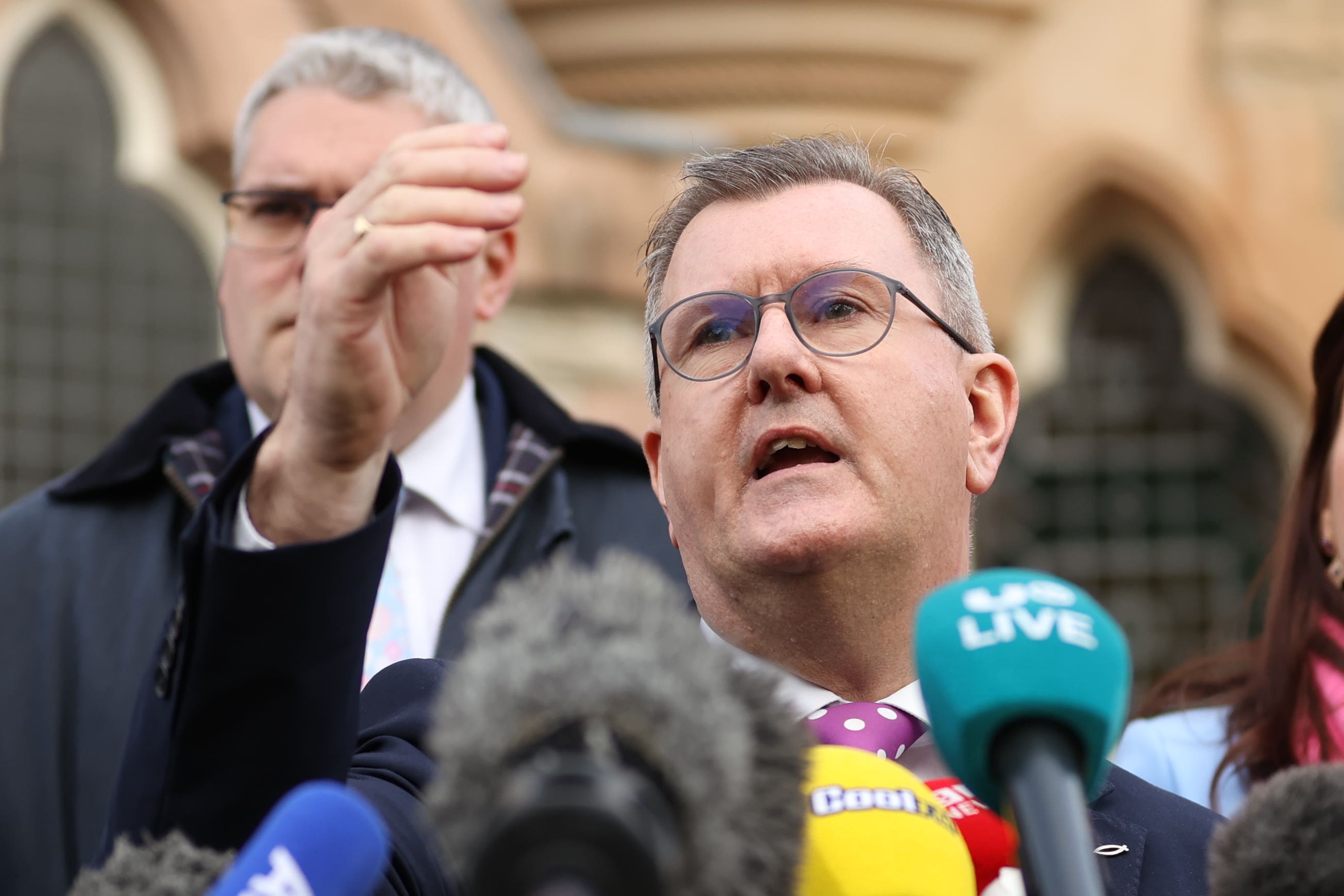Brexit: MPs will vote on key part of Rishi Sunak’s protocol deal within days
Parliament will be asked to vote on ‘Stormont brake’, as Tony Blair backs UK-EU agreement

MPs will get a vote on a key part of Rishi Sunak’s new post-Brexit deal for Northern Ireland in parliament next week.
They will be asked to approve a statutory instrument relating to the so-called “Stormont brake” section of the deal on Wednesday, Commons leader Penny Mordaunt announced.
It represents the first Commons test for the PM’s Windsor Framework deal with the EU to resolved the Northern Ireland Protocol row.
But No 10 said more votes would be held on different aspects of the deal – raising the prospect of a return to showdown Brexit battles seen under Theresa May and Boris Johnson.
Asked if other statutory instruments would be voted on, Mr Sunak’s spokesman said: “I believe they will be. I think there are a series of SIs that will be agreed through the House.”
It comes as former Labour prime minister Tony Blair told MPs that the Sunak deal was “the most practical way forward” and “the best I think you can do with this”.
The UK-EU agreement seeks to reduce the volume of red tape on the movement of GB goods bound for Northern Ireland created by Mr Johnson’s Brexit withdrawal deal.
The Stormont brake mechanism enables a minority of Stormont politicians to formally flag concerns about the imposition of any new EU goods laws in Northern Ireland.
The process could ultimately lead to the UK government vetoing their introduction, but unionist politicians in the DUP remains unhappy with the arrangements.
Details of exactly how the brake is supposed to operate are due to be outlined in the secondary legislation published on Monday. On Tuesday, a meeting of EU ministers at its General Affairs Council is expected to sign off on the pact.
The European Research Group (ERG) of Tory Brexiteers has commissioned a so-called “star chamber” of experts to consider the deal before it decides how to vote.
Mark Francois, the group’s chairman, said: “We now hope to see this completed before next Wednesday and members of the group will no doubt pay close attention to the star chamber’s conclusions, prior to any vote.”

Mr Johnson said earlier this month that he would find it “very difficult” to vote for the deal in parliament – claiming it doesn’t “take back control” from Brussels.
Former cabinet minister Jacob Rees-Mogg had suggested many Brexiteer MPs would want to follow the DUP’s lead. But the DUP is not expected to deliver a verdict for several weeks, with their own special panel still deliberating its merits.
The DUP – which collapsed powersharing in Belfast in protest at the protocol – has said Mr Sunak’s Windsor Framework doesn’t deal with “fundamental problems”.
Leader Sir Jeffrey Donaldson said earlier this week “further clarification, re-working and change” was needed.
However, No 10 insisted on Thursday that there were “no plans” to change the agreement struck with EU Commission president Ursula von der Leyen last month.

In a transatlantic row, Sir Jeffrey said US Senate majority leader Chuck Schumer after the senior American politician urged the DUP to go back into Stormont.
“I say to all parties in the North, but especially the DUP, let’s get to the people’s business, the business of power-sharing and self-governing,” said Mr Schumer.
He said that “as majority leader of the United States Senate which decides on treaties, I will not support any trade deal between the US and the UK if any settlement undermines the Good Friday Agreement”.
Sir Jeffrey told Sky News: “I would urge the senator to read some history books. Maybe he’d learn a little bit more about what really happens and the reality of the situation.”
Meanwhile, Mr Blair backed the deal. Speaking to MPs in the Northern Ireland affairs select committee on Thursday, the former PM said there was “no real answer to this problem” of the underlying tensions over the protocol.
“There’s no theoretical answer to it – there is a practical answer,” said Mr Blair. “My reason for supporting what the government and this prime minister has done ... is that I think it represents the most practical way forward that minimizes all the theoretical objections.”
Wednesday’s vote will form part of a major day in parliament, with Mr Johnson also set to be questioned by the privileges committee as part of its inquiry into whether the former prime minister lied to MPs with his Partygate denials.




Join our commenting forum
Join thought-provoking conversations, follow other Independent readers and see their replies
0Comments